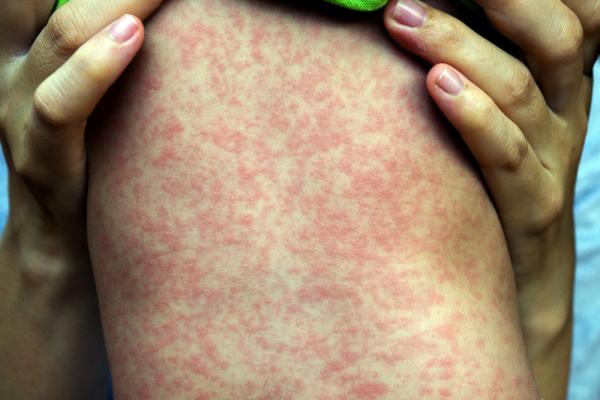Anti-vaxxers give several excuses (all debunked, of course) for their stance against vaccines. These include that vaccines cause autism, that they cause the disease they supposedly prevent, and that these childhood diseases, especially measles and chickenpox, are simply a natural rite of passage that shouldn't be interfered with. But what they typically don't acknowledge is that such vaccines also prevent some pretty serious ailments down the road.
Chicken pox, caused by the varicella zoster virus (a member of the herpes group), causes fever, malaise and an itchy rash of small blisters. It can, particularly in immune-compromised persons, instigate other problems such as bacterial infections of the skin in children and pneumonia in adults. And even decades after the initial infection has died away, the virus lies dormant in the nervous system of the patient. After some precipitating illness or event, it can be activated and cause shingles — an intensely itchy and painful rash. This rash also consists of blisters that are distributed along the area of the body served by that nerve (or dermatome) as shown in this photo.
 The rash may heal in a week or two, or may last much longer. And even after the rash is essentially gone, residual pain (post-herpetic neuralgia) can last for many months.
The rash may heal in a week or two, or may last much longer. And even after the rash is essentially gone, residual pain (post-herpetic neuralgia) can last for many months.
Measles, too, can leave a lasting impression on its victims. And that's besides the most common complications seen with the disease. Measles is caused by the rubeola virus, and is one of the most contagious ailments. Although in the United States, with our advanced health care and well-nourished population, measles may simply seem like a relatively mild respiratory disease, yet on a global scale it is one of the leading killers of children under the age of 5 years. Symptoms include cough, fever, light sensitivity, runny nose, sore throat and muscle aches, and of course the signature rash that occurs 3 to 5 days post-exposure and can last a week. Besides the most common complications such as ear infections or diarrhea, more serious ones can include pheumonia or encephalitis. And recently researchers noted that the incidence of a fatal complication, subacute sclerosing panencephalitis (SSPE), was higher than previously published among unvaccinated children in California.
Thus, while vaccination can certainly prevent the occurrence of measles and chicken pox, it would be well to keep in mind that manifestations of these diseases may occur well after the original infections seem to have disappeared. And at times, these later symptoms can seem more debilitating than the original illness — so prevention by vaccination can provide benefits well into the future.




